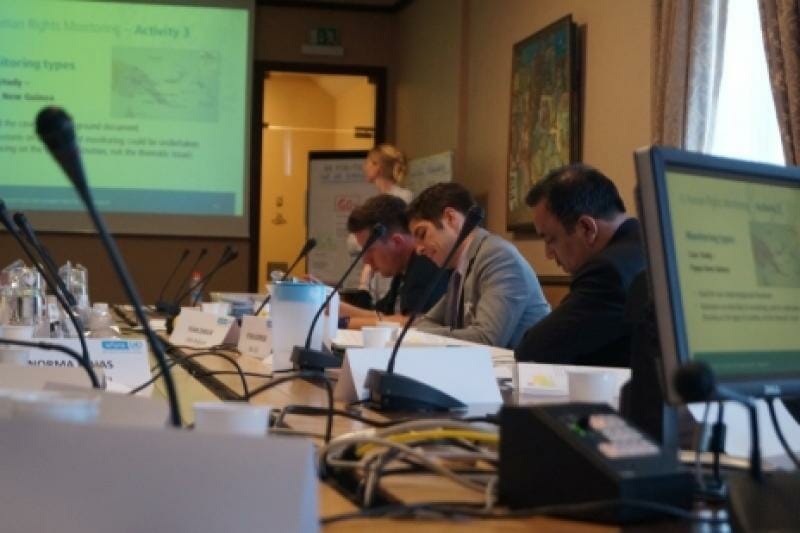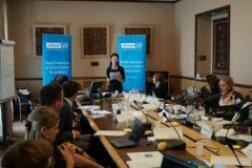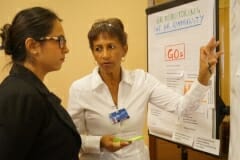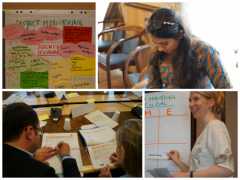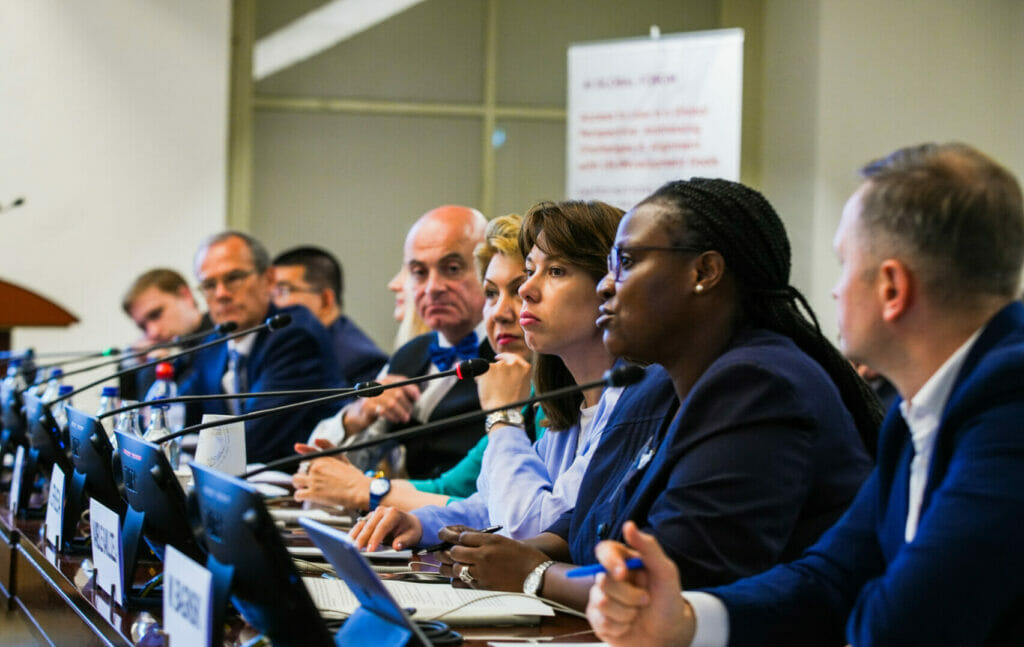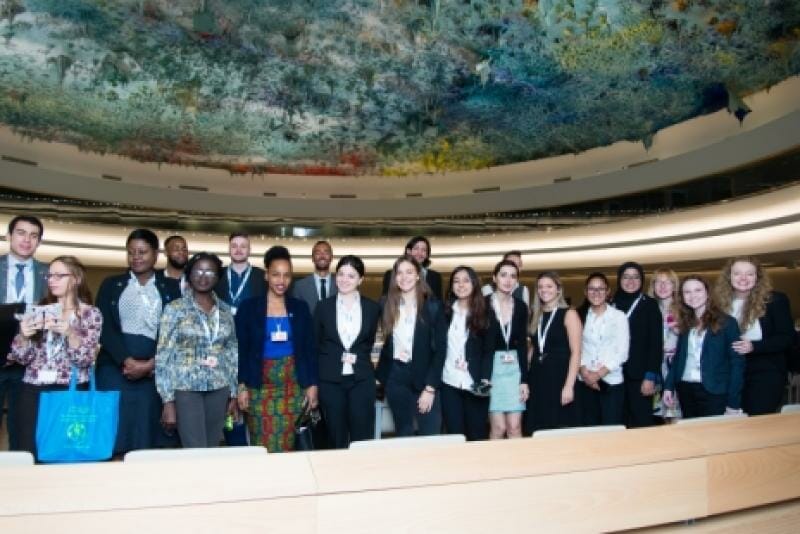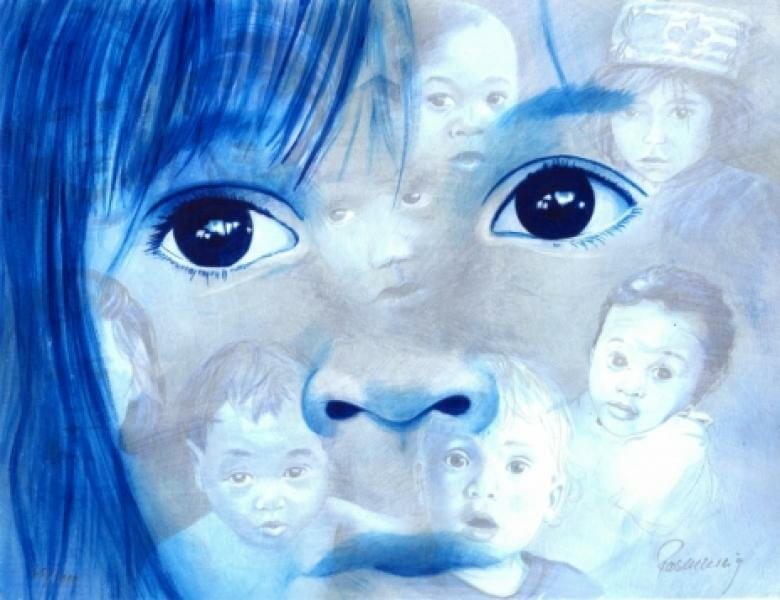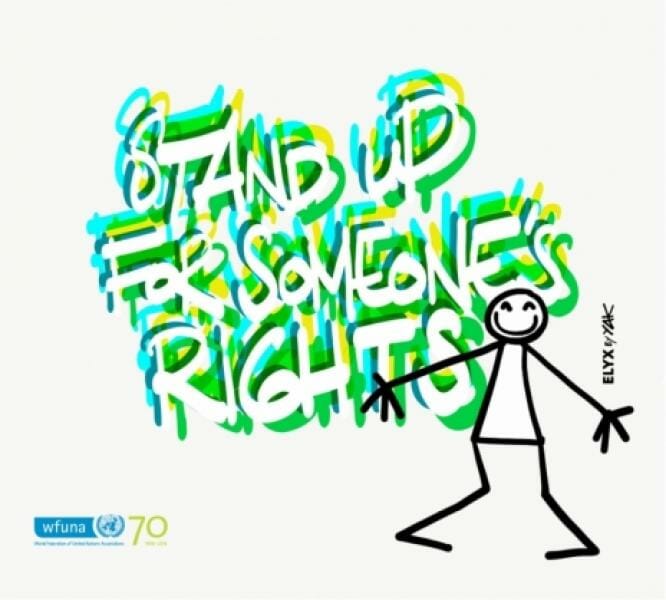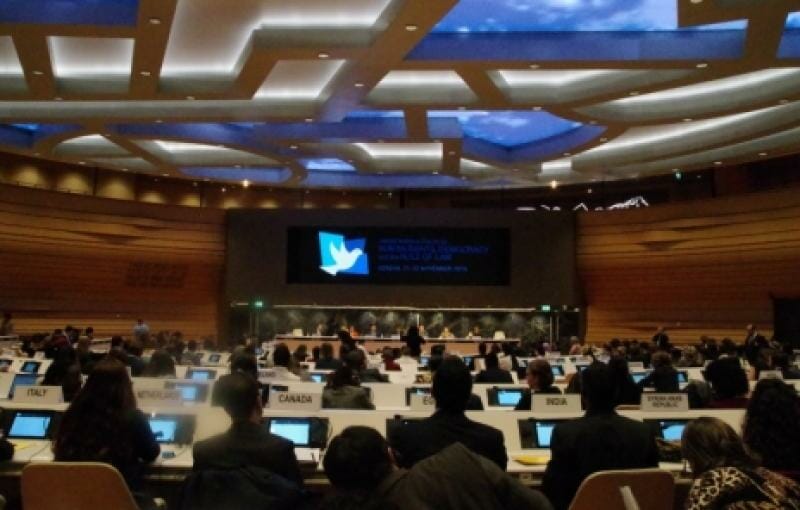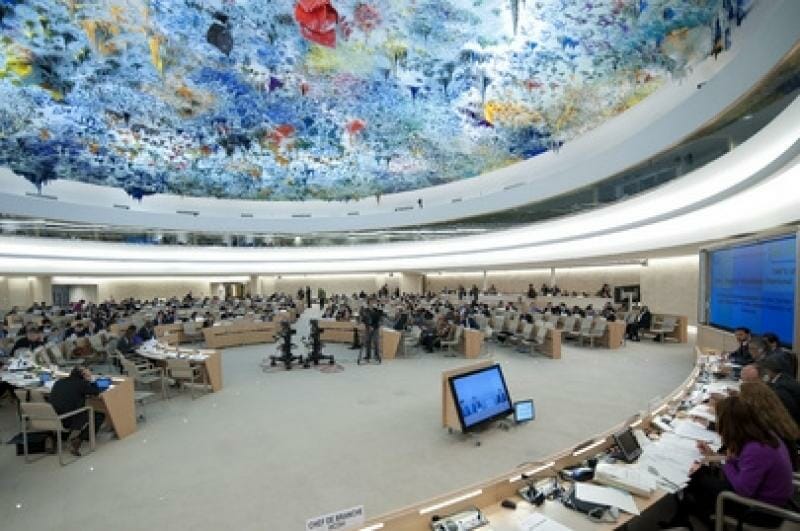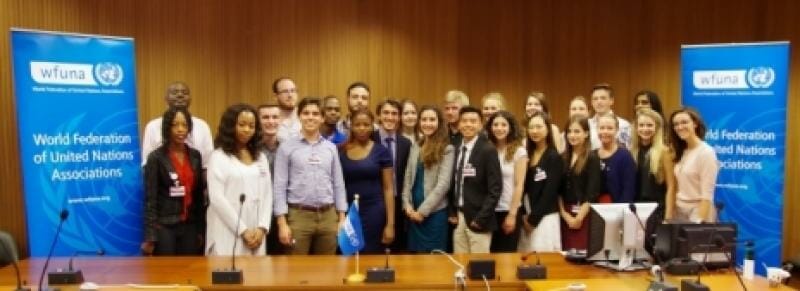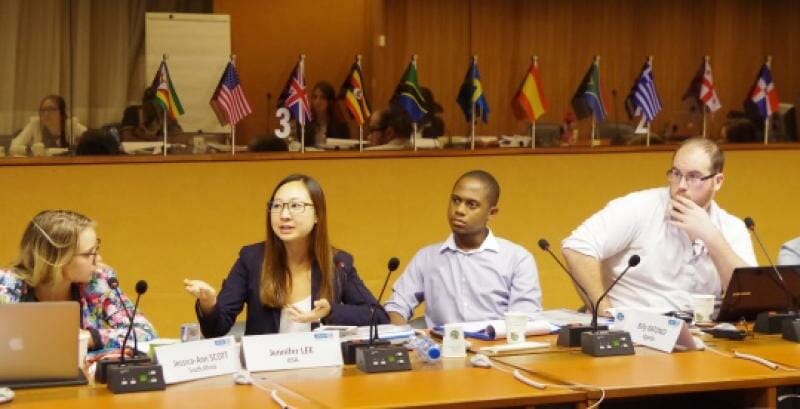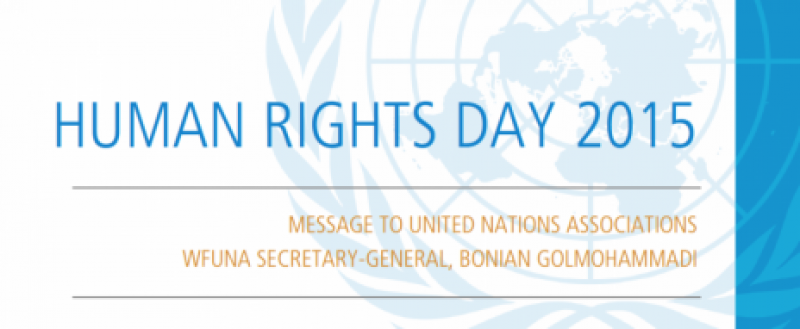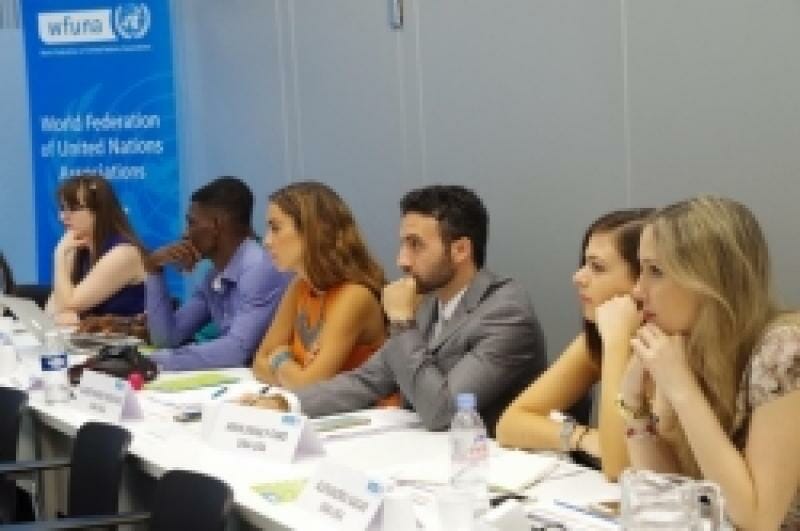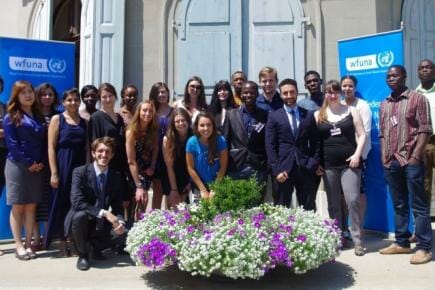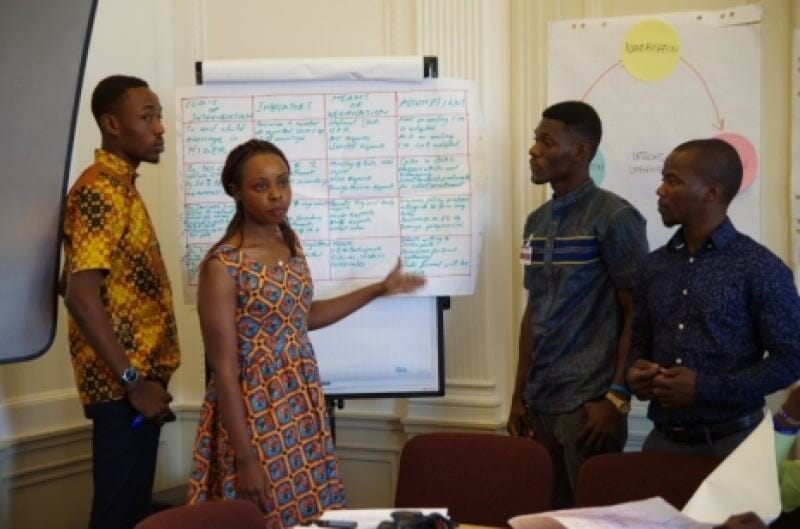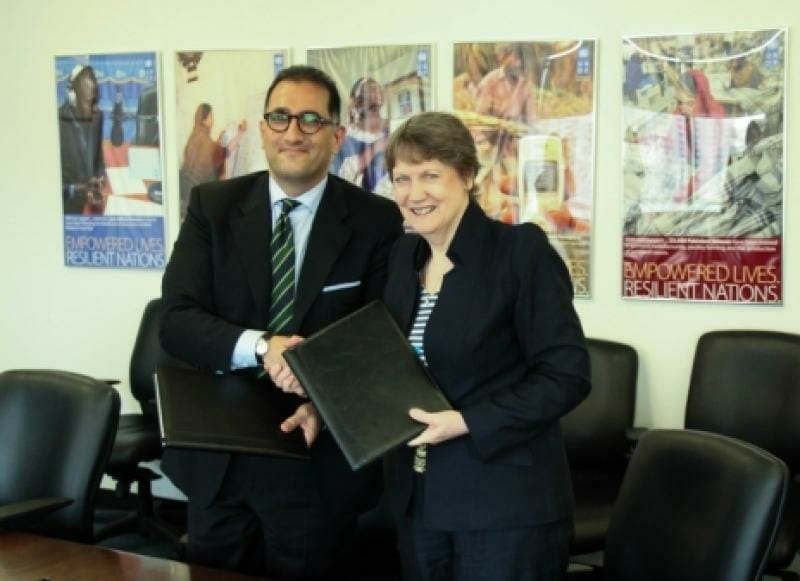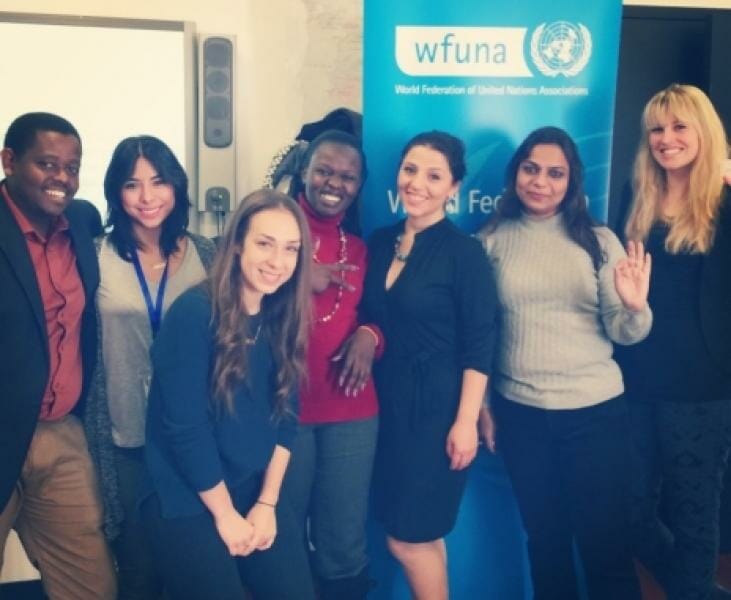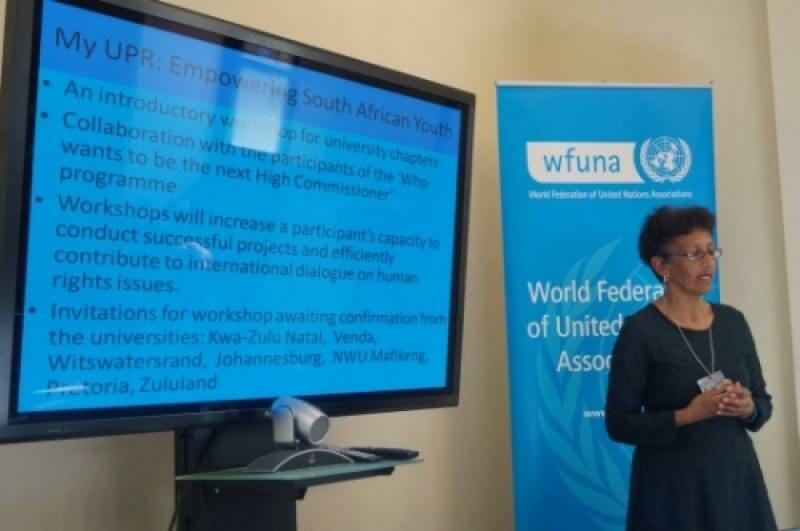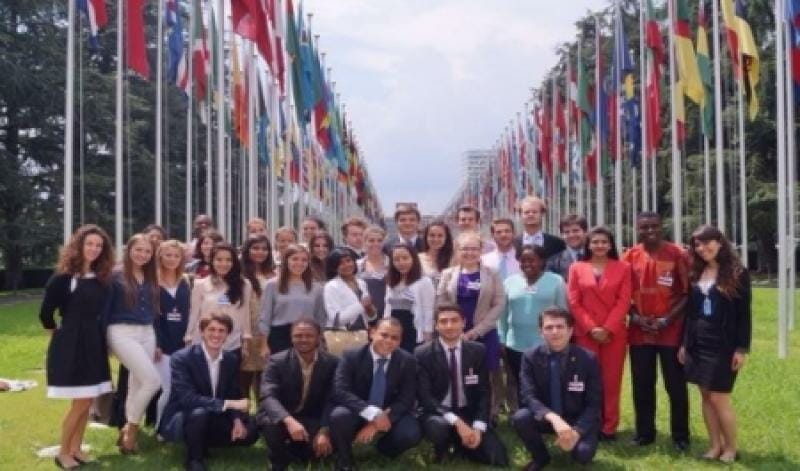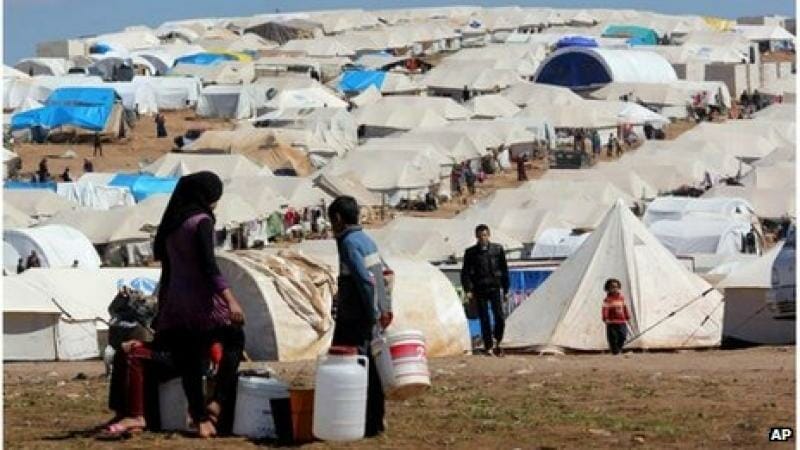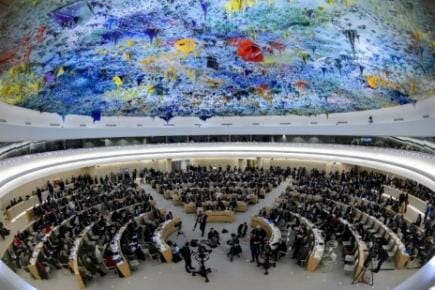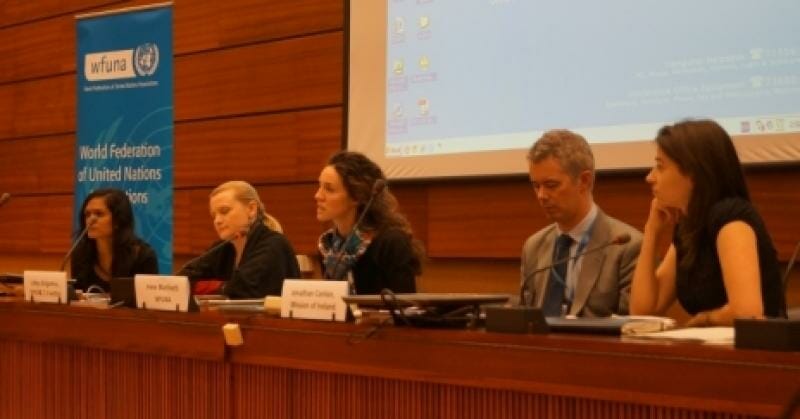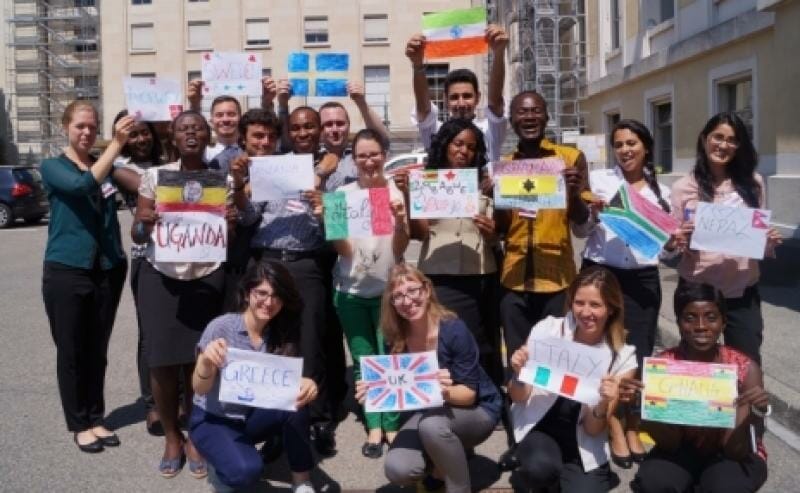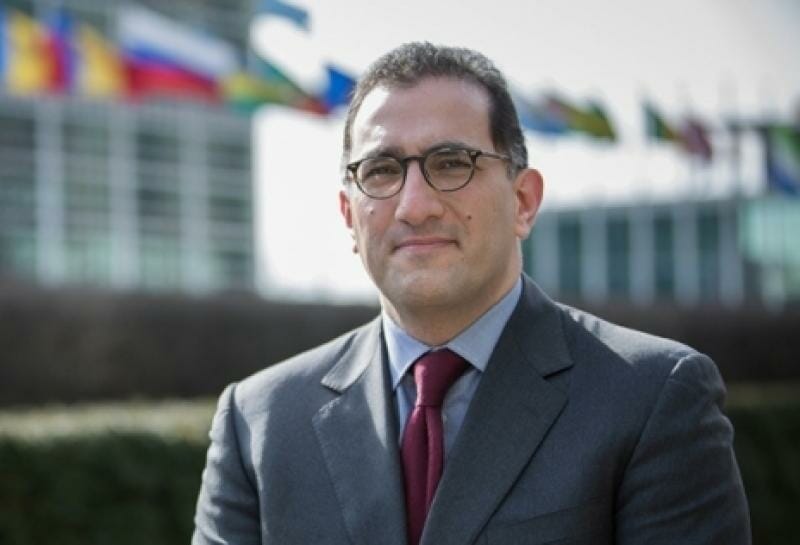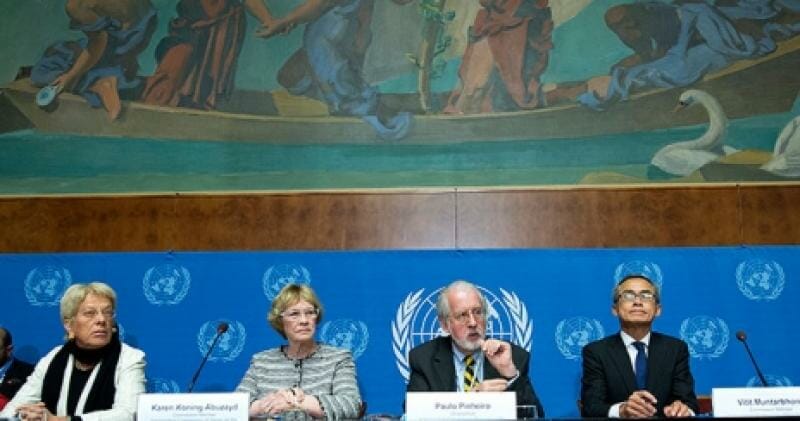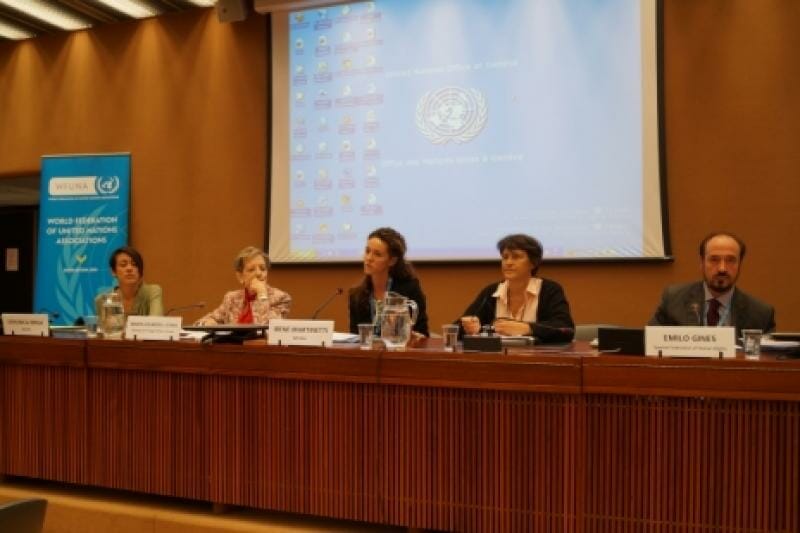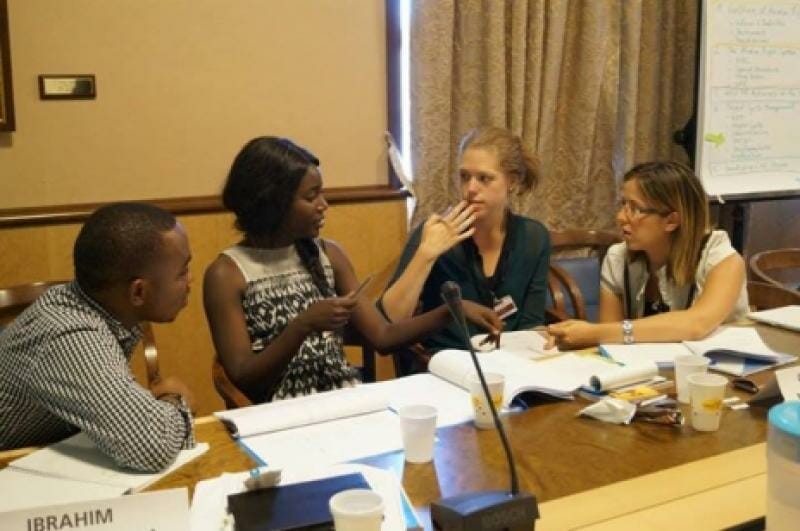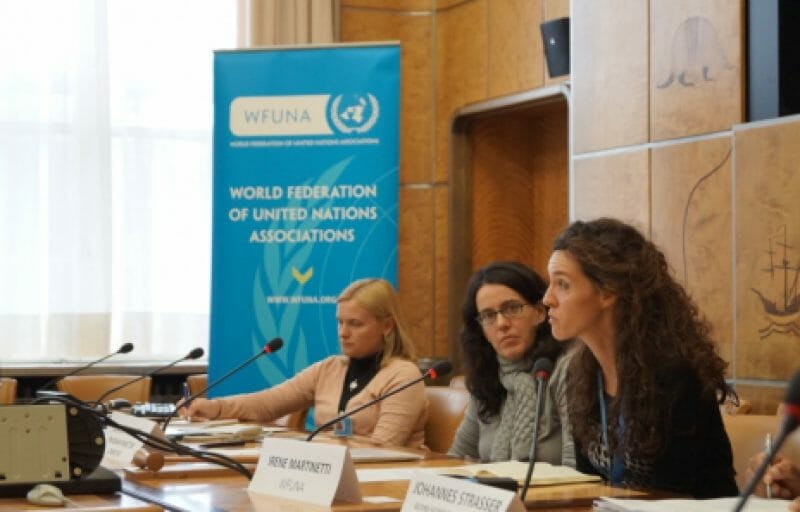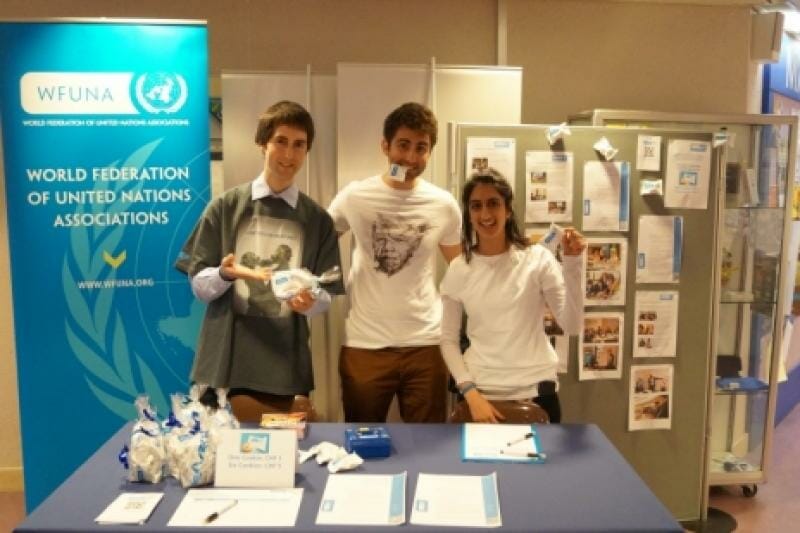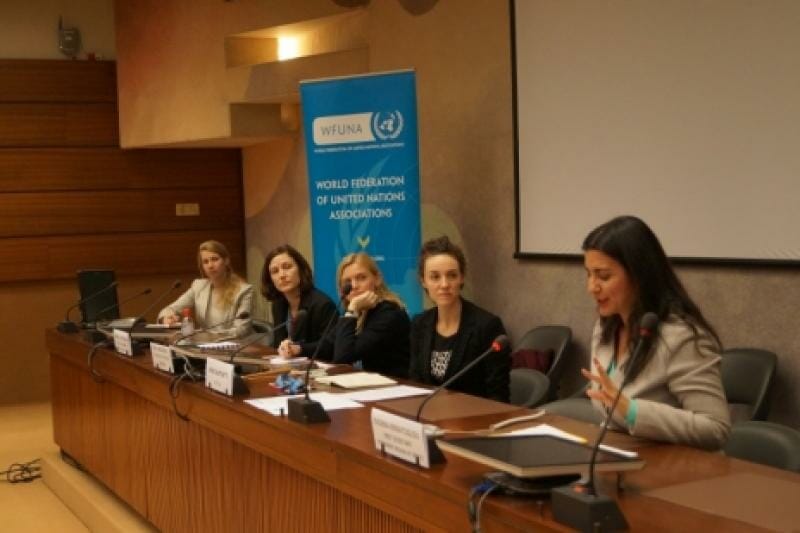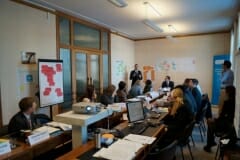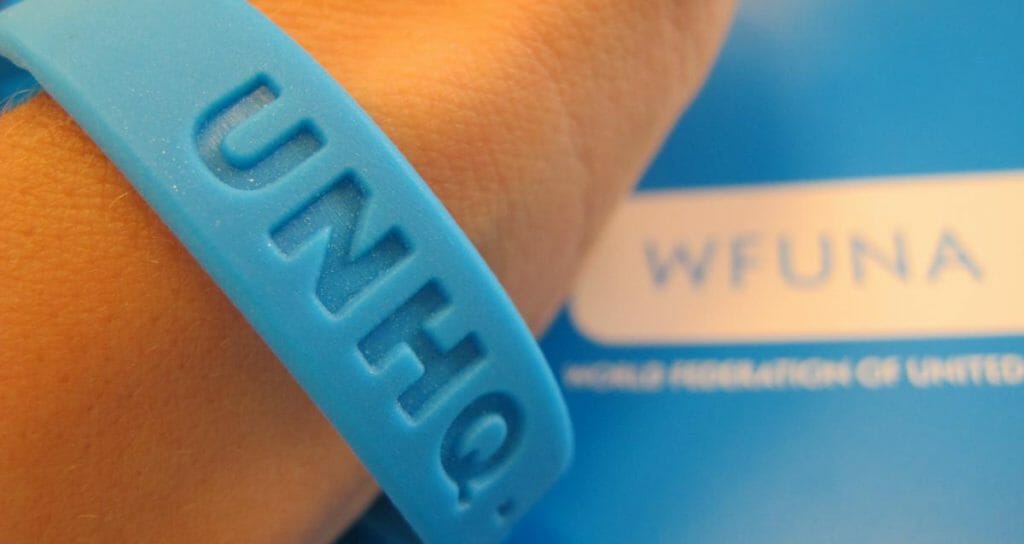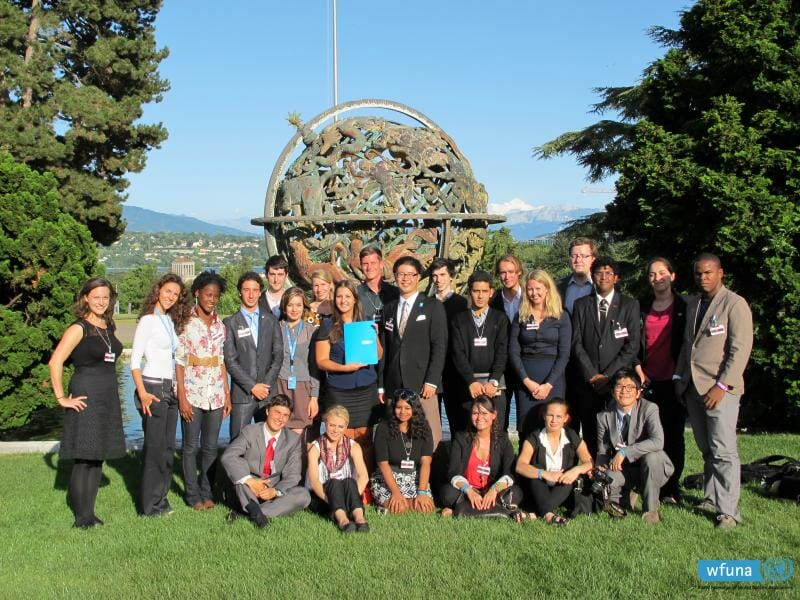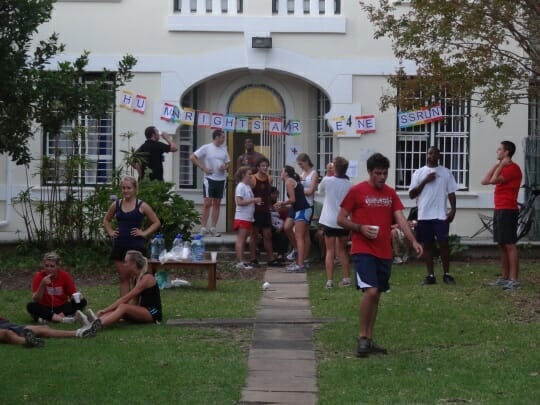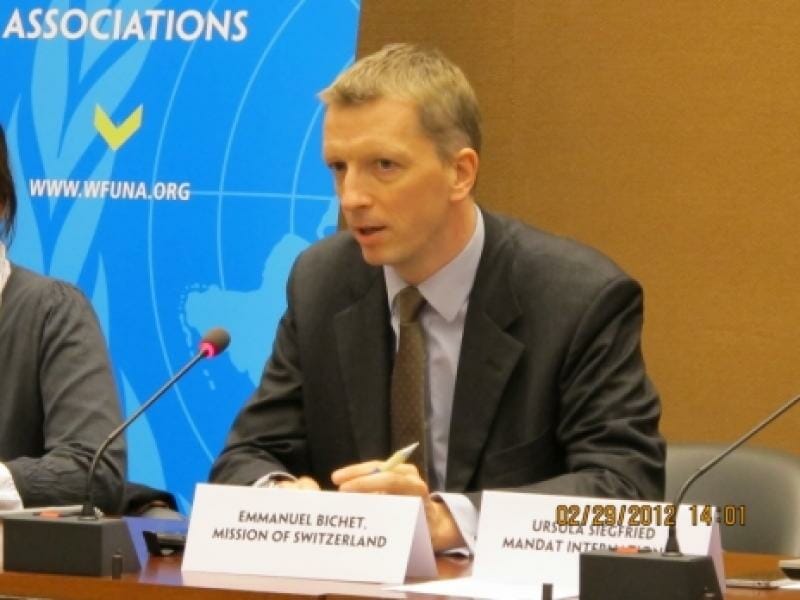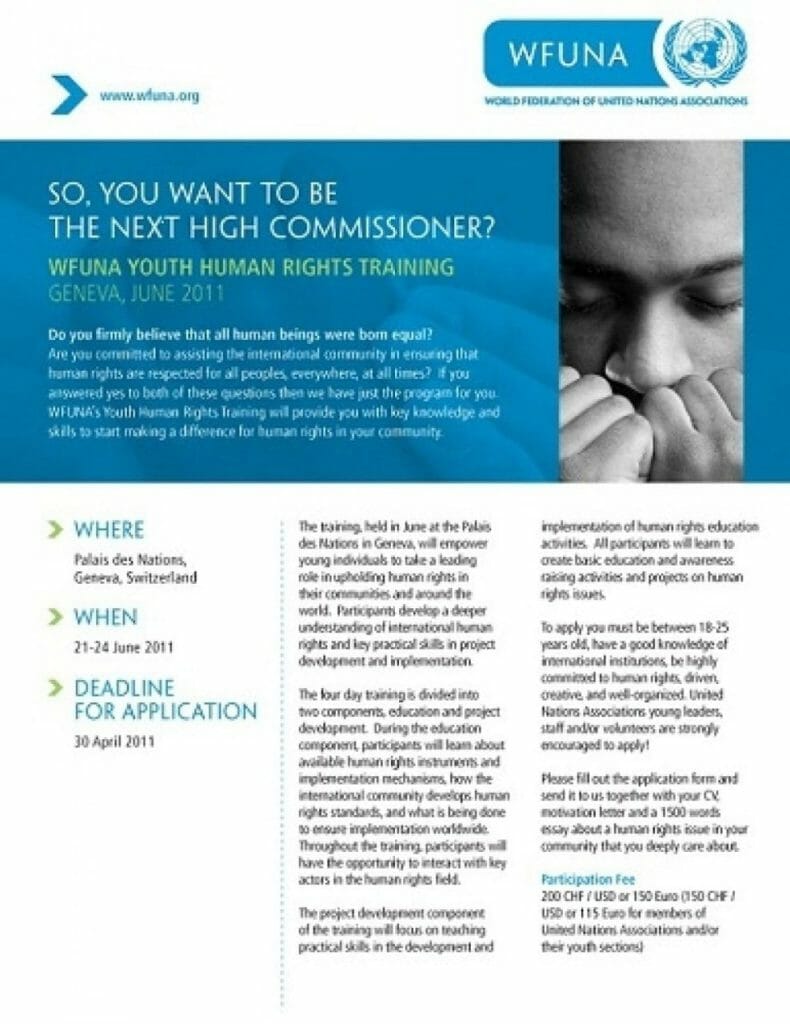Day I: 2014-05-05
After a cheerful reunion with 12 participants from 10 different UNAs in Geneva, Irene Martinetti, WFUNA’s Director of Programs, officially opened the third session of our CSAHR training by recalling the program’s design and objectives.
The first day of our training focused on the United Nations Human Rights System and the work of the national UNAs. Through an interactive quiz, our participants had the chance to demonstrate their knowledge of the UN and the different human rights mechanisms.
This session was followed by a presentation of UNA Ghana, Nepal and South Africa who provided the other participants with an amazing inside perspective about the human rights activities they have been implementing. During the presentations they outlined their project goals, including the promotion and protection of children’s rights through education, shelters and advocacy work.
In the afternoon, an inspiring session was held by Sugan Naidoo, Human Rights Officer for the OHCHR. He briefed the participants about NGOs engagement in the UPR process and how important their contributions are in strengthening the UPR process and the UN human rights system as a whole. Moreover, he provided fruitful information about the steps involved in the submission of written contributions and the main challanges that NGOs could face.
Following this session, our Human Rights Education Program Officer, Wiebke Harms introduced participants to the strategies of human rights monitoring and the different approaches that could be taken. Nonetheless, she stressed that continuous and persistent follow-up is key to achieve change.
The first training day ended with an informal dinner at “Chez Ma Cousine” in downtown Geneva.
Day II: 2014-05-06
On the second day of the training, participants had an opportunity to develop a feeling for the UPR process by participating in the UPR review of Ethiopia.
Following this session, CSAHR participants had the chance to brainstorm on their draft ideas for human rights contributions to UN human rights mechanisms with their fellow UNA members. During fruitful discussions they exchanged ideas on their projects and received great feedback on their work.
In the afternoon UPR Info Programme Manager Francesca Piccin guided UNAs through an extensive presentation on the UPR. She provided participants with valuable information about the functioning of the UPR and how NGOs can most effectively engage with it.
Day III: 2014-05-07
Today’s session of CSAHR III focused on the advocacy work ourUNAs are doing at a national level.
In the morning Norma Rojas from UNA Venezuela gave us an emotional inside-view of the student protests that hit her country recently and explained how the situation has evolved in the country.
Following her presentation, Torbjørn Urfjell from UNA Norway briefed our participants on the work of his NGO and provided inspiring tips and tricks for effective NGO engagement with the UPR. Johanna Wiklund from UNA Sweden gave a presentation about the challenges Swedish society faces and outlined the work her UNA is doing for the upcoming UPR of Sweden in 2015. Finally, Ryan Kaminski, from UNA-USA provided participants with an insight of his experience with the UPR mechanism. UNA-USA has recently been working with its local chapters, other civil society organizations and educational institutions in drafting recommendations for the upcoming review of the United States at the UPR.
In the afternoon, our participants got the chance to get a one-on-one checkup of their human rights contributions. During this session WFUNA’s Director of Programs, Irene Martinetti and our Human Rights Education Program Officer, Wiebke Harms emphasized on the importance of making concise contributions in order to strengthen the UPR process through written submissions. After having collected useful information about all the different steps involved in UPR submissions, participants finally developed their own strategy to strengthen their work with the mechanism.
The third training day ended with a lot of happy faces and the strong will to strengthen civil society contributions to the UN human rights mechanisms.
Day IV: 2014-05-08
The fourth day of CSAHR III focused on the advocacy work UNAs do at the national level. In the morning we started with a small checkup on how comfortable participants feel engaging with UPR process. We were happy to see that most participants showed a good level of confidence in their knowledge of the UPR process and in how they can engage effectively with it.
Following this session, Eeva Hurmalainen from UNA Finland and Torbjørn Urfjell from UNA Norway held a presentation on how to develop an effective and efficient communication strategy for the UNAs’ advocacy work. The briefing included a case study of an advocacy campaign seeking to eliminate plastics from waterways and with the ultimate goal of an international convention on the topic: the campaign made effective use of existing social media to reach out to the public and maximize the impact of the petition.
Participants then took part in a group activity where they had the chance to put into practice the information received, working on real advocacy projects that will be implemented by the UNAs of South Africa and Georgia. During the group discussions the delegates had the chance to exchange their views on the two projects and added valuable ideas to strengthen the great work the two UNAs are doing.
In the afternoon several UNAs organized individual consultations with WFUNA staff where they could discuss more in details their own projects and receive personalized support. Finally, participants took part in the UPR session to assist to the adoption of reports on Costa Rica, Equatorial Guinea and Ethiopia.
Day V: 2014-05-09
The fifth and last day of WFUNA’s CSAHR training started with a great presentation on Monitoring and Evaluation led by Wiebke Harms, WFUNA’s Human Rights Education Officer. Wiebke walked the participants through the different steps involved in the design and implementation of a monitoring strategy and provided them with useful tips on how to effectively measure the success of their project activities. The session was enriched by interactive exercises and group-works where participants could put into practice the notions acquired.
In the afternoon, participants presented their projects ideas explaining their future actions and emphasizing how they are going to use the newly gained information. Through their projects, participants plan to tackle social issues relevant to their countries by engaging in the UPR process.
Working to protect the rights of women and children was a common theme for many UNAs: UNA-South Africa will focus on violence against women and children, UNA-Nepal on child labour and UNA-Venezuela on the access to quality free basic education. UNA-Finland will implement capacity-building workshops with Finnish journalists to bring their attention to the UN human rights mechanisms, while UNA-Sweden, UNA-Norway and UNA-USA will carry on with the activities to provide a submission for the upcoming UPR review of their respective countries. Finally, UNA-Georgia is going to work on minorities and gender issues.
The last day ended with a wrap up of the training and an evaluation by the participants. WFUNA would like to thank all participants for their commitment and fruitful contributions: best of luck for the implementation of your projects and… see you in September!


